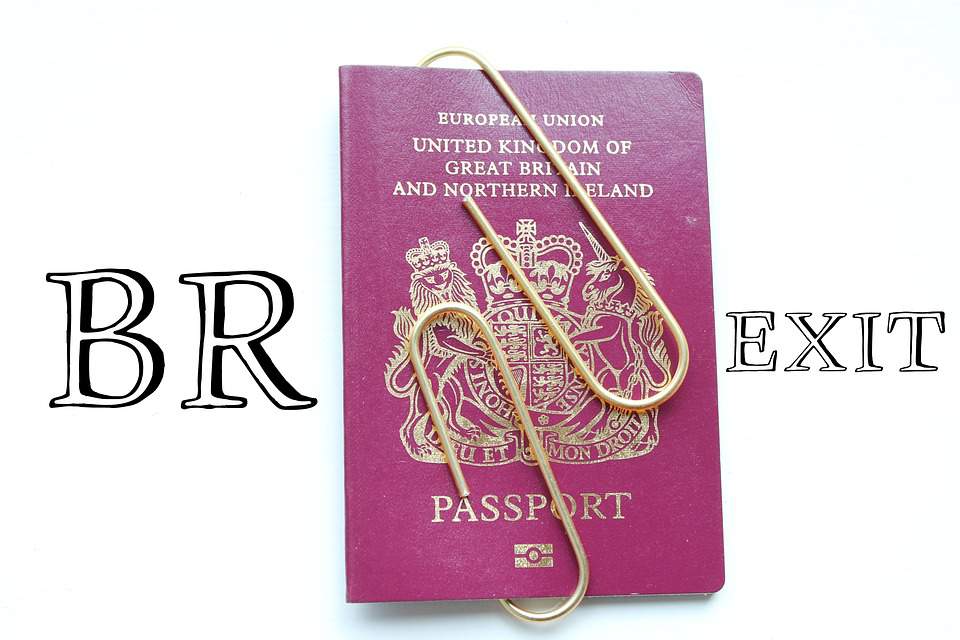Here are the ways Hungarians will be affected in case of a no-deal Brexit

The world has been in uncertainty ever since Britons decided to leave the EU two years ago. The situation still does not look too rosy, and one of the deadlines, March 2019, is fast approaching. The British government claims they are against a no-deal Brexit, but they are also in the dark about how things will turn out. A clear indication of that is that they have started to prepare the nation for the worst. The aim is to reassure everybody, but it may turn out they achieved the exact opposite – reports hvg.hu.
The cabinet’s 70-point warning
The British government has a 70-point list of what can be expected in case of a no-deal Brexit, 25 of which have been recently published. A lot of areas will be affected, including trading, making transfers, possibly even when pensions are paid. Not to mention the fact that no-deal means all that has been agreed so far would be disregarded. The fate of European students or even airlines is still uncertain.
A lot has happened since the outcome of the 2016 referendum, that affects over 4 million Europeans living in the UK:
- The British government’s first plan was to leave the EU right away.
- Then the idea was to have a hard Brexit and break it all off with the EU.
- Finally, when it turned out a hard Brexit was not an option because of the Ireland – Northern Ireland border, the possibility for soft Brexit arose.
Considering 26 months have passed and it is still unknown whether anything at all will come of the decision, the cabinet decided to outline the situation in 70 points, what we can expect if no deal is made.
So, if the UK does end up leaving the EU on 29 March 2019, after 46 years of membership, the aftermath will affect Hungarians in the following ways.
Education
So far, the government revealed nothing about what European students can expect if they decide to continue their studies in autumn 2019, whether they will be assured circumstances similar to the current situation. However, seeing as nothing about the transition period till the end of 2020 has been agreed on, it can hardly be expected that the case of European students will be prioritised.

The UK will most probably also leave the Erasmus+ programme,
meaning not only that Hungarian students will not be able to go to any UK universities for a semester but also that British students will not be able to travel as part of Erasmus after 2020 when the EU’s current financial programme will be up. At least the programmes that started already can be completed, and students can still choose the UK as their destination in the autumn 2018 application period.
Research
The EU has a Horizon 2020 programme, in which funds for research and development are often awarded to international consortiums. The British government guarantees the continued support of British researchers; however, that does not involve anybody outside the UK. This can even lead to certain groups not meeting all the criteria and losing all grants.
Trading
This is the area that basically no one knows what to expect from; therefore it is possible the most significant chaos will ensue here.
Right now, there is a free trade system, but it can easily be changed to required registration, various permits, declaring products and going through customs whenever the border is crossed.
It is also possible customs have to be paid after the goods, and if there is no deal, prices will be based on the current tariff system of the WTO. So far, nothing has been revealed about the conditions of the possible registration system; however, these can be expected to be set out by the end of this year.
VAT causes even more problems, as it currently operates corresponding to the guidelines of the internal market. Nevertheless, the government announced that VATs would be kept even in case of a no-deal Brexit since they are too good of an opportunity to gain money for the cabinet to just give it up.
Changes in the administration are inevitable, however, and these can affect everybody working in the country, be it Hungarians trading or providing services with a VAT registration number or anyone else.
Not to mention deliveries that will have to get permits both ways.
Companies are advised to start thinking now about whether they are willing to sign up for that, as most of them have little knowledge about how the system actually works.
Most tradespeople, of course, have considered what the future might look like and suggested a shortage of goods to frighten people living on the island. Although Dominic Raab emphasised how unlikely it is that soldiers will be needed to hand out rations, they also say that no-deal is very unlikely and we still do not know anything.
On the other hand, the state of trading will definitely change in case of a hard Brexit as well, considering the whole point of that is for Britain to give up their role in the internal market.
Nevertheless, nothing can be known about the actual future cooperation between the UK and the single market.
Besides, specific products will require new permits which can make it more difficult to get to them. When it comes to weapons, it is not really a big concern, more so when it comes to radiative materials and can delay certain types of therapy treatments.
Medicines

The good news is that there probably will not be a medicine shortage, considering the UK will still accept EU permits for medicines coming from the EU. However, this is contradicted by
another claim saying that the healthcare system had better brace itself for anything,
with at least 6-weeks worth of medicine saved up. Moreover, when it comes to the blood supply, the UK will be cut out of the EU’s system and will have to rely on themselves to solve such problems.
Also, it is all different if we regard exports, as everything will have to be approved twice after Brexit finally happens.
Financial services
This can be a real problem area, as the EU rather heavily regulates this sector and can decide to make things complicated and expensive, despite making international transfers faster and cheaper in the past few years. However, it can all be for nought if a no-deal Brexit happens and the laws applicable for non-European countries is reintroduced to Britain.
This can mean higher transfer fees and a slower process.
As of now, the government is working on creating a provisional system, mostly so that transfers can keep their pace between countries currently enjoying the EU benefits. When it comes to individual citizens, however, not only higher transfer fees but additional charges when using debit cards can also be expected.
Besides, another issue with very possible serious consequences is if the UK loses their right to unified European passports.

That would mean that they cannot provide services to EU customers. It can also lead to contracts ceasing to be in force, for example for bank accounts or insurances – but apart from investments and loans. In fact, it could also mean not being able to access saved-up pensions, since the future state of the social security system or pensions is still unknown.
Right now, companies are trying to solve these problems for themselves by founding subsidiary companies in other EU countries.
Employees’ rights
In the case of a no-deal Brexit, UK laws will be in effect for everybody working on the island. This suggests that the transition period promised to be in place until the end of 2020 when it is still the current laws and rights that matter, is just that – a promise. The comfort that the new documents provide is that these laws are stricter than EU laws – though what exactly this means has not been elaborated on.
The question arose about what employees of a bankrupt company can do. The papers suggest that the situation, in that case, would not be any different from the current one, ensured by UK laws, however, according to the People’s Vote group, these laws are no guarantee for anything.
Is the end near?
Right now, upon delving deeper into the situation, it seems like our best chance is forming any deal.
It is doubtful at the moment that a new referendum will be held to take it all back.
In the past, Dominic Raab has said that there is a 60% chance for a no-deal Brexit, however, the recent documents reveal that the chances continue to grow and drop. There is cause for hope, however, considering Raab, the new Brexit Secretary, seems to be more open for deal negotiations with the EU. Time is of the essence, however. Officially, all the questions should be settled by October this year that have been stagnant for the past two years…
For more news, check out this article about the amount of Hungarians working jobs below their qualifications.
Source: hvg.hu







